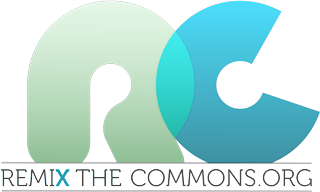
How commons could be the base of a transition of the society? The equator is launching an initiative to bring together hackers and indigenous communities around the sharing of knowledge.
Original article published here
The FLOK Society welcomes Michel Bauwens to Ecuador. Bauwens, a founder of the P2P Foundation, flew into Quito on Sept. 17 to begin collaborating towards a fundamental reimagination of Ecuador.
Bauwens will lead a research team that is proposing to unleash a participatory, global process with an immediate implementation in Ecuador. The process will remake the roots of Ecuador’s economy, setting off a transition into a society of free and open knowledge.
In the first semester of 2014, Bauwens will assist in setting up a global network of transition researchers. The P2P Foundation is a global network of researchers that is documenting the shift towards open, participatory and commons-oriented practices in every domain of human activity, but especially also the shift from collaboration on open knowledge and code, towards cooperation in open design, open hardware, open science, open government, and the shift towards open agricultural and open machining practices that have great potential for increasing the productivity and sustainability of farming and industrial processes.
Ecuador is the first country in the world which is committing itself to the creation of a open commons knowlege based society. In order to achieve the transition to a ‘buen saber’, or ‘good knowledge’ society, which is an extension of the official strategy towards a ‘buen vivir’-based society, the Advanced Studies Institute (IAEN by its ]Spanish initials) in Quito, Ecuador, led by the rector Carlos Prieto, has initiated a strategic process, called the FLOK Society Project, which aims to organize a major international conference in March 2014, and will produce 10 strategic documents proposing transition policies towards the good knowledge society, which will be presented to the Ecuadorian citizens through intensive participatory processes, similar to those that took place for the establishment of the new Constitution and the ambitious National Plans, which set the guidelines for government policy.
While Buen Vivir aims to replace mindless accumulative economic growth to a form of growth that directly benefits the wellbeing of the Ecuadorian people, Buen Saber aims to create the open knowledge commons which will facilitate such a transition. FLOK stands for ‘Free Libre and Open Knowledge. In order to establish these transition policies and documents, IAEN has connected itself with the global hacker and free software movement, but also with its extension in the many peer to peer initiatives that directly aim to create a body of knowledge for physical production in agriculture and industry.
The P2P Foundation knowledge base has also focused on documenting new policy and legal frameworks being set up by sharing cities such as Seoul, San Francisco, and Naples ; and regions such as Bordeaux, Open Commons Region Linz in Austria, South Sudan, the Cabineto Digital of Rio del Sur, and more. It’s database of 22,000 global commons initiatives has been viewed nearly 25 million times and attracts 25,000 researchers, activists, users and readers on a daily basis. Michel Bauwens is also the author of a Synthetic Overview of the Collaborative Economy, an external expert for the Pontifical Academy of Social Sciences, a member of the Hangwang Forum in Chengdu that works on industrial sustainability, and engaged in a research project for Leuphana University on digital liquid democracy. As a founding member and partner of the Commons Strategies Group, he co-organized two global meetings on the commons, the last one in May 2013 in Berlin was dedicated to the emerging field of Commons-oriented Economics.
In March, the P2P Foundation organized a ‘global hispanic wikisprint’, with the help of Spanish-Brazilian activist Bernardo Gutierrez, in which more than registered 500 individuals and collectives, in more than 60 cities and 23 countries, mapped the open, p2p, sharing and commons initiatives in their region and areas of activities, resulting in a Latin American network of connected activists and scholars.
IAEN believes that the connection between the hacktivism communities, the FLOK Society, and the global and hispanic networks active in constructing open commons will be vital to create a synergy with the local actors of Ecuadorian society, and will help us accomplish the mayor goal we have set for ourselves as a country.
